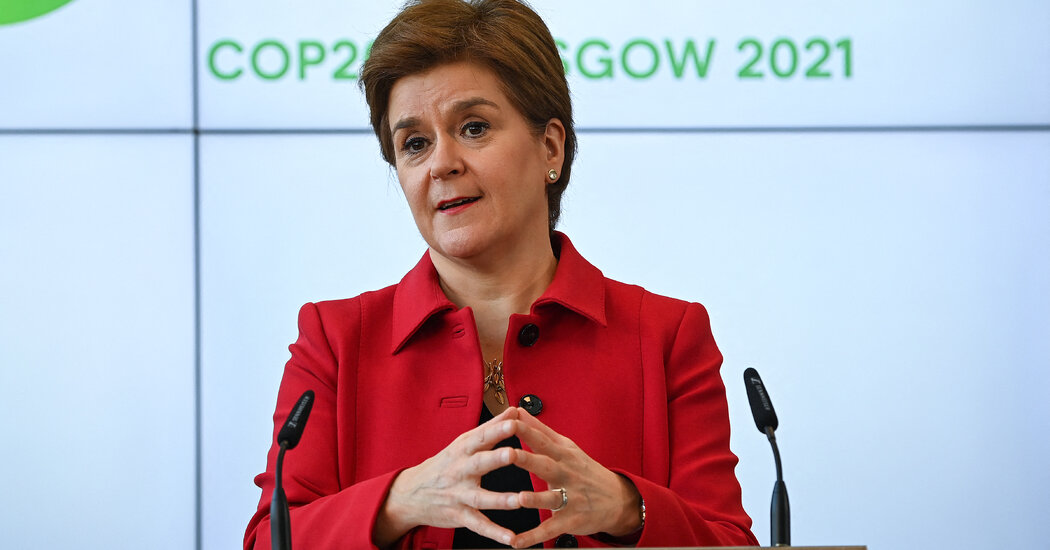
Climate promises are difficult to keep. Scotland is the most recent, perhaps the most surprising, example.
Scotland, an early industrial powerhouse and coal giant, was also an early adopter of an ambitious, legally binding government target to slow climate change. It had promised to reduce emissions of planet-warming greenhouse gases by 75% by 2030, compared to 1990 levels.
This week, Net Zero minister Mairi McAllan said the target was now “out of reach”. He said Scotland, which operates semi-autonomously from Britain, would scrap its annual emissions reduction targets and instead review them every five years.
This is in stark contrast to the Scottish Government's optimism in 2021, when diplomats from around the world gathered in Glasgow for international UN climate talks. At the time, First Minister Nicola Sturgeon called Scotland's climate targets “not only among the most ambitious in the world, but also among the most challenging”.
This turnaround shows how difficult it can be for governments to deliver on ambitious promises to reduce emissions, despite the growing urgency to act as climate change rapidly warms the world and fuels extreme weather.
Far beyond Scotland, the setback risks manifesting itself in global climate diplomacy. This could strengthen claims by some emerging economies, whose emissions continue to grow, that incumbent polluters, such as Scotland, are not doing enough to reduce their fair share.
There are also domestic political implications of an election year in Scotland. It is an embarrassment for the governing coalition, led by the Scottish National Party, which favors greater independence from Britain, of which Scotland is part.
So what happened?
The Climate Change Committee, an independent body appointed by the British Parliament, said several weeks ago that Scotland had repeatedly delayed its climate plans and had not reduced emissions fast enough in most sectors of the economy. Scotland's 2030 targets, the committee said in mid-March, are “no longer credible”.
Emissions have already fallen dramatically in Scotland. In 2021 they were 49% lower than in 1990. The problem is that this is not fast enough to be in line with the government's targets.
The committee said that while the electricity sector has reduced emissions (Scotland has a lot of wind energy), Scotland is not on track to reduce emissions from other sectors. They have failed to make sufficient progress in installing heat pumps to replace natural gas in heating. And its transportation emissions were not reducing fast enough, in part because it lacks concrete plans to reduce its reliance on cars, which was part of its plans.
Nor, contrary to its promises, has Scotland done enough to restore peatlands, which lock up significant amounts of carbon dioxide, the main greenhouse gas warming the world.
In her speech to Parliament on Thursday, Scottish Minister McAllan said Scotland remained “steadfast” in its long-term goal of completely neutralizing its emissions by 2045. This remains one of the most ambitious targets in the world. The Committee on Climate Change, however, concluded that “there is no global strategy” to get there.
